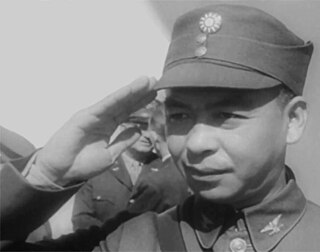 W
WThe 2008 Chinese milk scandal was a significant food safety incident in China. The scandal involved milk and infant formula along with other food materials and components being adulterated with melamine. The chemical was used to increase the nitrogen content of diluted milk, giving it the appearance of higher protein content in order to pass quality control testing. Of an estimated 300,000 victims, 6 babies died from kidney stones and other kidney damage and an estimated 54,000 babies were hospitalized.
 W
WOn 12 August 2015, a series of explosions killed 173 people, according to official reports, and injured hundreds of others at a container storage station at the Port of Tianjin. The first two explosions occurred within 30 seconds of each other at the facility, which is located in the Binhai New Area of Tianjin, China. The second explosion was far larger and involved the detonation of about 800 tonnes of ammonium nitrate. Fires caused by the initial explosions continued to burn uncontrolled throughout the weekend, resulting in eight additional explosions on 15 August.
 W
W"Chinese drywall" refers to an environmental health issue involving defective drywall manufactured in China, imported to the United States and used in residential construction between 2001 and 2009 — affecting "an estimated 100,000 homes in more than 20 states."
 W
WThe Chongqing gang trials were a series of triad-busting trials in the city of Chongqing that began in October 2009 and concluded in 2011. Carried out under the auspices of municipal Communist Party chief Bo Xilai and police chief Wang Lijun, a total of 4,781 suspects were arrested, including 19 suspected crime bosses, hundreds of triad members, and a number of allegedly corrupt police, government and Communist party officials, including six district police chiefs and the city's former deputy police commissioner, Wen Qiang. Time described it as "China's trial of the 21st century". The crackdown is believed to be the largest of its kind in the history of the People's Republic of China. Concerns over due process surfaced following the trial, including allegations of torture, forced confessions, and intimidation.
 W
WFood safety incidents in China have received increased international media scrutiny following the reform and opening of the country, and its joining the World Trade Organization. Urban areas have become more aware of food safety as their incomes rise. Food safety agencies in China have overlapping duties. The 2008 Chinese milk scandal and COVID-19 pandemic received the most attention among food safety incidents.
 W
WMao Bangchu or Mow Pang Tzu was a high-ranking military officer in the Chinese Chiang Kai-shek government. He was the main figure in an embezzlement scandal that pitched him against the Taiwan government in the early fifties. The charges and countercharges of fraud and misappropriation of millions of dollars, ensuing legal battles, and John-le-Carré-like plots involving private detectives, Mexican prisons, night-club dancers, US Congressmen, suspicious deaths, and the US Supreme Court, were covered in over 2,000 articles published in the US, China, Australia, India, and many other countries around the world.
 W
WThe Umbrella Movement was a political movement that emerged during the Hong Kong democracy protests of 2014. Its name arose from the use of umbrellas as a tool for passive resistance to the Hong Kong Police's use of pepper spray to disperse the crowd during a 79-day occupation of the city demanding more transparent elections, which was sparked by the decision of the Standing Committee of the National People's Congress (NPCSC) of 31 August 2014 that prescribed a selective pre-screening of candidates for the 2017 election of Hong Kong's chief executive.
 W
WWei Wenhua was the general manager of a construction company, Shuli Architectural Engineering. He was beaten to death in Wanba, Tianmen, Hubei, after attempting to film Chinese authorities clashing with villagers.
 W
WThe Wenzhou train collision occurred on 23 July 2011 when two high-speed trains travelling on the Yongtaiwen railway line collided on a viaduct in the suburbs of Wenzhou, Zhejiang province, People's Republic of China. The two trains derailed each other, and four cars fell off the viaduct. 40 people were killed, at least 192 were injured, 12 of which were severe injuries. This serious traffic disaster was caused by both the critical defects of design and the rough management of the bullet train company. Officials responded to the accident by hastily concluding rescue operations and ordering the burial of the derailed cars. These actions elicited strong criticism from Chinese media and online communities. In response, the government issued directives to restrict media coverage, which was met with limited compliance, even on state-owned networks.